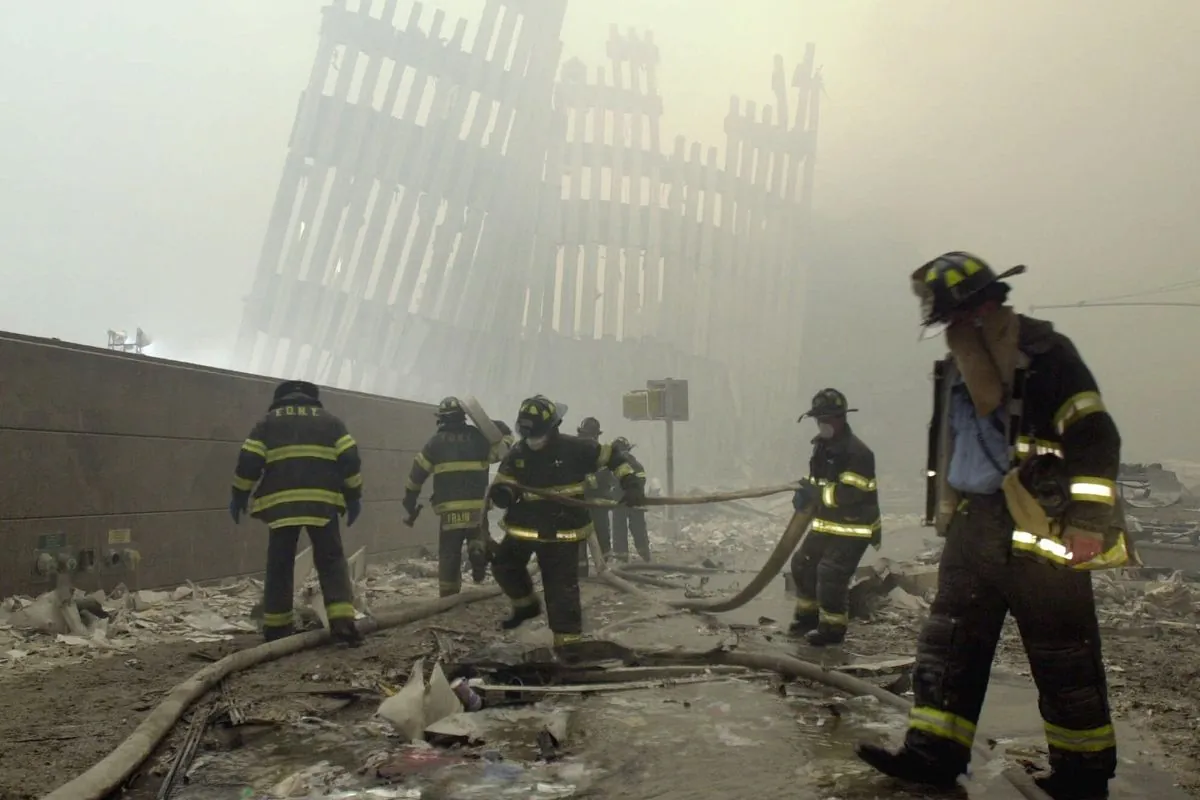A recent study has unveiled a disturbing trend among 9/11 first responders, revealing a significantly elevated risk of early-onset dementia. The research, published in the summer of 2024, indicates that those with the highest exposure to dust and debris at Ground Zero are over 14 times more likely to develop dementia before age 65 compared to those with minimal exposure.
Dr. Benjamin Luft, director of a program at Stony Brook University monitoring first responders' health, led the groundbreaking study. The research involved more than 5,000 individuals who underwent regular testing for over a decade. The findings have sparked renewed calls for the inclusion of dementia in the World Trade Center Health Program's coverage.
The World Trade Center Health Program, established in 2011, currently covers various conditions linked to 9/11 exposure, including:
- Cancer
- Respiratory ailments
- Mental health conditions
- Musculoskeletal disorders
However, cognitive impairment and dementia have only recently been recognized as potential long-term consequences of Ground Zero exposure.
Dr. Ray Dorsey, professor of neurology at the University of Rochester, explains the mechanism behind this increased risk: "The nose is the front door to our brain. Dust and chemicals set up shop in the smell area of our brain, then spread to the parts of the brain important for memory."
This phenomenon is particularly relevant to 9/11 first responders, as the dust cloud from the collapse of the Twin Towers contained over 2,500 contaminants, including asbestos and lead. Over 400,000 people were exposed to this toxic mixture in the aftermath of the attacks.
The case of Tom Beyrer, a former police officer who served at Ground Zero for six months following 9/11, illustrates the long-term impact of this exposure. At age 65, 19 years after the attacks, Beyrer began experiencing significant cognitive decline. His wife, Maria Beyrer, recounts:
"He took a shower and told me to take those clothes, throw them outside, get rid of them. Then he got dressed and went back out. He was there for six months, 12 hours a day."
[[Tom Beyrer, 9/11 First Responder]]
The study's findings show a clear dose-response effect, with higher exposure levels correlating to increased dementia risk. For those with severe exposure, the incidence rate was 42.37 per 1,000 person-years, compared to just 2.95 for those with the lowest exposure.
Dr. Caroline Tanner, a neurologist at the University of California, San Francisco, praises the study's methodology: "It's remarkable that they could measure it and show a higher risk of dementia as the exposure went up. It's an extremely well done study."
As of 2024, the World Trade Center Health Program has enrolled over 110,000 responders and survivors. The program's spokesperson, Anthony Gardner, stated that they are reviewing the study's findings but emphasized the high scientific standard required to add new conditions to their coverage list.
Advocates, including Benjamin Chevat of 911 Health Watch, acknowledge the need for further research but stress the urgency of addressing this emerging health crisis. U.S. Senators Charles E. Schumer and Kirsten Gillibrand have also voiced their support for expediting the process of potentially including dementia in the program's coverage.
The study's findings underscore the critical importance of personal protective equipment in hazardous environments. As Dr. Tanner notes, "The big take-home from this paper is that people who used personal protective equipment were protected from the worst effects."
As the 23rd anniversary of 9/11 approaches, the long-term health consequences for first responders continue to unfold. The inclusion of dementia in the World Trade Center Health Program's coverage could provide crucial support for those who selflessly served in the aftermath of one of America's darkest days.
